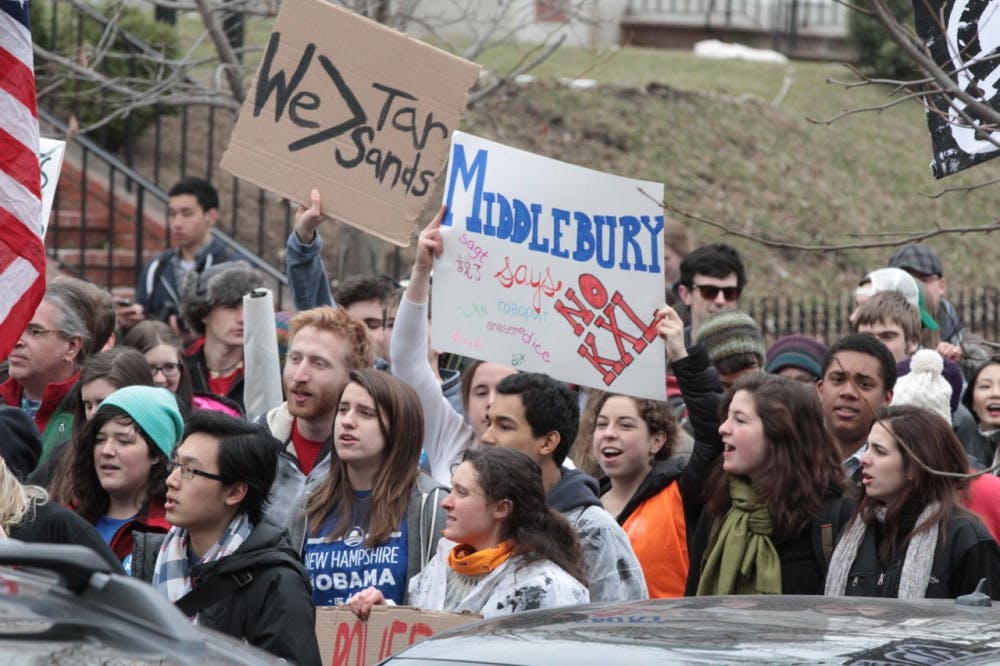On Feb. 28, 12 Middlebury students travelled down to Washington D.C. for XL Dissent, a student-organized protest of the the Keystone XL Pipeline. They were joined by 1200 other protesters — primarily students — from across the country. The event culminated in an act of civil disobedience, during which 398 students were arrested — seven of them being students at the College.
Keystone XL is a proposed pipeline that would carry over 800,000 barrels of crude oil a day. If completed, the pipeline will span 1,664 miles from oil sands in central Alberta, Canada to refineries on the coast of the Gulf of Mexico. The project has garnered unprecedented attention due to its scale and size. Proponents argue that it would provide vital jobs and reduce foreign energy dependence. Its detractors argue that it would cause detrimental damage to the environment and cancel out any efforts to reduce carbon emissions in North America.
The students joined students from four other Vermont schools on a bus traveling down to D.C. Hannah Bristol ’14.5, a D.C.-area native, put up the Middlebury students at her home. On Sunday, the protest began at Georgetown University, the site of President Obama’s climate change speech last June. The crowd then marched to Lafayette Park for the main rally, making a stop in front of Secretary of State Kerry’s house to demand that he intervene before the project is approved.
“The energy and solidarity at this protest was unlike any of the other Keystone rallies I’ve attended,” Bristol said. “I think part of that comes from the fact that many of us knew we were going to be arrested. It created an instant bond.”
After the two mile march, the group gathered in the park to hear five speakers. Bristol, who took last fall off to work on President Obama’s campaign in New Hampshire, spoke last to the energetic crowd.
“President Obama was voted in by unprecedented youth turnout,” Bristol said. “I spoke to hold him accountable to his campaign promises on climate change.”
After the rally, the large group staged a sit-in. Many participants zip tied themselves to the gates of the White House while others spread banners on which they performed “fake deaths” caused by adverse effects of the tar sands. Within a few hours, the D.C. Park Police encircled the group, barricading them in. Slowly, they arrested the participants.
By the end of the day, police had arrested 398 protesters, seven of whom were Middlebury students, and brought them to the police station for processing.
“Everyone complied, and the police were courteous,” said Bristol, who was among those arrested. “The arrests demonstrated that we are willing to make serious sacrifices as a movement, and we are committed to this fight.”
The XL Dissent protest is part of a series of events opposing the Keystone XL Pipeline until President Obama announces his verdict on the project.
While 79 percent of voters under the age of 35 support climate change action, 56 percent of American adults support the pipeline. While the percent of support has waned in recent polls, both proponents and opponents of the project remain highly vocal. On campus, students like Bristol will continue to show their solidarity through protest.
Seven Students Arrested in Keystone Pipeline Protest

Comments



